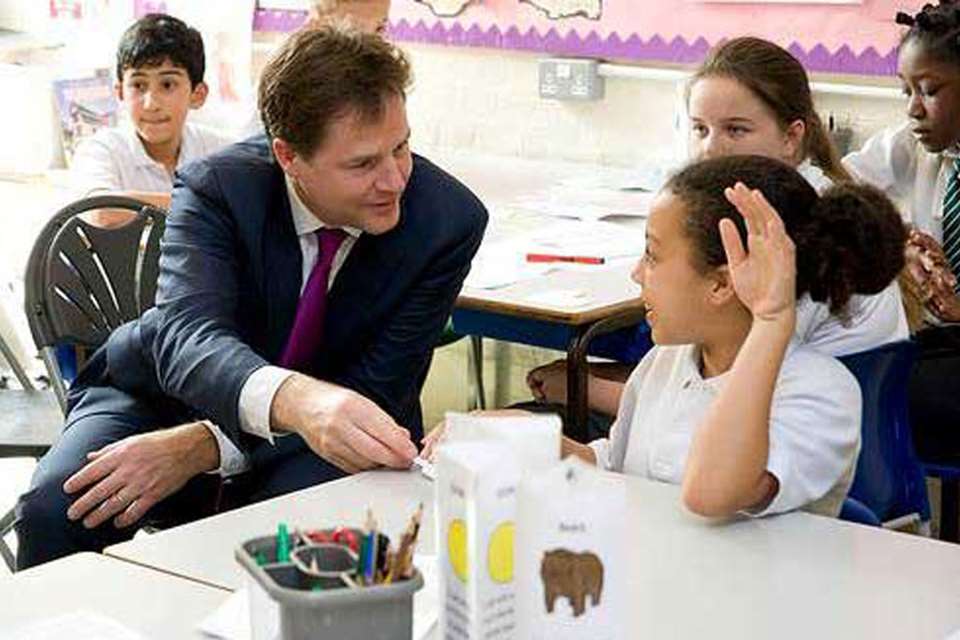DfE invites proposals for Reception Baseline Assessments
Monday, October 6, 2014
The Department for Education (DfE) is inviting proposals from organisations to design and deliver Reception Baseline Assessments to schools from September 2015.

Worth a total of £2 million to £4.2 million, contracts will be awarded to organisations or consortia of organisations whose assessment meets the minimum baseline criteria and provides value for money.
The new baseline check will be used to assess children starting Reception class in September 2016 and beyond. However, schools can introduce the assessments from next year.
Primary schools will be able to choose which assessment to use from the list of providers awarded contracts by the DfE.
A limit has not been set on the number of providers that will be offered an initial 19-month contract, in order to increase choice for schools. The amount that organisations will be awarded is dependent on the number of successful bids.
Once the 19 months inital contract period is over, there will be potential for contracts to be extended by a further 12 months.
Putting in a bid
Early Excellence is one organisation that has put forward a bid to deliver a Baseline Reception Assessment. It already provides a range of services to the early years sector, including both equipment and training.
National development manager Jan Dubiel told Nursery World, 'Our model is based on practitioners' knowledge of children through observation and other forms of evidence, which will be measured against the Leuven Scales for well-being and involvement as opposed to using tests or pre-set tasks.
'It is designed to fit collectively with and build upon the existing effective EYFS assessment.
'Schools will be able to submit their assessments electronically.'
The assessments are intended to fit into what practitioners are already doing, Mr Dubiel said. Early Excellence is keen to ensure that schools have 'a real choice' and 'to protect the value of observational assessment'.
Mr Dubiel said the organisation has been piloting the assessment with 22 schools including around 1,000 children since the summer, when teachers took part in a day's training on the Leuven Scales. This training would be included as part of the assessment.
The schools started using the baseline assessment this term, and Mr Dubiel said so far feedback has been very positive.
Meeting the criteria
To be successful in their bid, providers' assessments must meet the following criteria:
- suitable for a range of children's attainment
- accessible to as many children as possible, at least 99 per cent
- clearly linked to the learning and development requirements of the communication and language, literacy and mathematics areas of learning in the EYFS
- appropriate for children's age and experience at the start of Reception and demonstrating a clear progression towards the Key Stage 1 curriculum in English and maths.
- available in suitable, modified formats to support children of Reception age with SEN and disabilities.
- focus on pupils with English as an Additional Language (EAL)
- report a score for each child on a single scale
In their assessments, providers will also be able to use a number of formats, i.e. on screen or paper.
Contract requirements
Contracts will be awarded at the end of January 2015.
Those that are successful will be required to employ apprentices while delivering the contract to support the Department for Education's apprenticeship programme. This is a requirement of all Government contractors.
Organisations must ensure that 5 per cent of their employees, or a similar proportion of hours worked in delivering the contract, are delivered by apprentices.
Those whose assessments are approved by the DfE will also be required to recruit more than 1,777 schools to their particular Reception baseline - this is equivalent to 10 per cent of the total number of schools with a reception class.
If a supplier fails to recruit enough schools, fewer than 1,000 by 30 May 2015, they will be removed from the approved list.
While they would not be able to deliver their assessment to schools, the contract would remain in place to allow the supplier to recruit schools for the following academic year, subject to the Department exercising the option to extend the contracts.
- The deadline for tender bids is 15 December 2014
THE RECEPTION BASELINE ASSESSMENT
The Government announced plans to introduce the Reception Baseline Assessment in March 2014 to improve the standard of schools and give credit to those that improve pupils' performance.
The baseline check will be used to assess children starting Reception in September 2016 and beyond.
It will be carried out by Reception teachers within the first half term of a pupil's entry to school.
The idea is to use the assessment as a starting point from which to measure the progress that schools make with their pupils.
According to the Department for Education (DfE), the content of the Reception Baseline will reflect the knowledge and understanding of children at the start of Reception.





